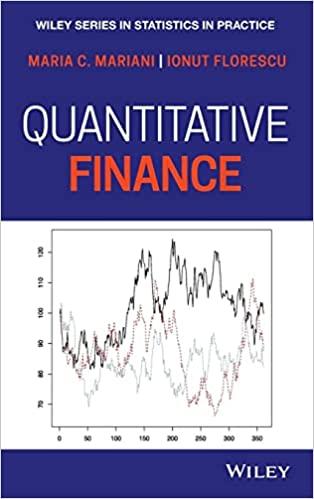A call option pays an amount (V(S)=frac{1}{1+exp (S(T) K)}) at time (T) for some predetermined price (K).
Question:
A call option pays an amount \(V(S)=\frac{1}{1+\exp (S(T) K)}\) at time \(T\) for some predetermined price \(K\). Discuss what you would use for a control variate and generate a simulation to determine how it performs, assuming geometric Brownian motion for the stock price, interest rate of \(6 \%\), annual volatility \(25 \%\), and various initial stock prices and values of \(K\) and \(T\).
Fantastic news! We've Found the answer you've been seeking!
Step by Step Answer:
Related Book For 

Quantitative Finance
ISBN: 9781118629956
1st Edition
Authors: Maria Cristina Mariani, Ionut Florescu
Question Posted:





